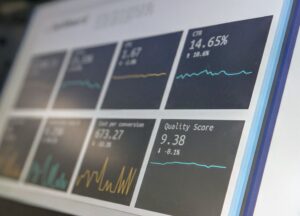Have a Glance
Artificial Intelligence (AI) and Machine Learning (ML) are transforming the way businesses operate and are set to revolutionise the job market in the next five years. AI and ML automate repetitive tasks and make decision-making processes more efficient, freeing up time for employees to focus on higher-value tasks.
However, while some jobs may be made redundant by AI and ML, new jobs are being created in areas such as data analysis and machine learning development. This shift will require employees to reskill and upskill to remain employable in a rapidly changing job market. Companies will also need to invest in training and development programs to support their employees in this transition.
Using Real-Time Data to Make More Improved Decisions
AI and ML also have the potential to drive significant productivity gains, by allowing companies to process large amounts of data in real time and make more informed decisions. In industries such as healthcare and finance, AI and ML can also improve accuracy and efficiency, leading to better outcomes for patients and customers.
As AI and ML continue to advance, they will also raise ethical and privacy concerns. Governments and businesses will need to address these concerns and ensure that AI and ML are being used responsibly and ethically.
Governments can utilise AI and ML in several ways
To improve public services and decision-making processes.
Some examples include:
- Improved efficiency: Governments can use AI and ML to automate routine tasks and streamline processes, freeing up resources for more high-value work.
- Better decision-making: AI and ML can provide governments with real-time insights and data-driven decision-making, enabling them to make more informed decisions and allocate resources more effectively.
- Enhanced public services: AI and ML can be used to improve healthcare outcomes, reduce crime, and enhance traffic management and disaster response.
- Fraud detection and prevention: Governments can use AI and ML to detect and prevent fraud in areas such as tax collection and benefits distribution.
- Improved citizen engagement: AI and ML can be used to enhance the delivery of public services by providing citizens with more personalized and convenient access to information and services.
However, the use of AI and ML by governments raises several ethical and privacy concerns. It is important that governments put in place regulations and oversight to ensure that AI and ML are being used in a transparent, accountable and equitable manner.
Conclusion
In conclusion, AI and ML are set to play a major role in the workforce over the next five years. While they may disrupt some jobs, they will also create new opportunities for growth and development. It is crucial that businesses and employees are prepared for these changes by investing in training and development programs, and addressing ethical and data privacy concerns.





